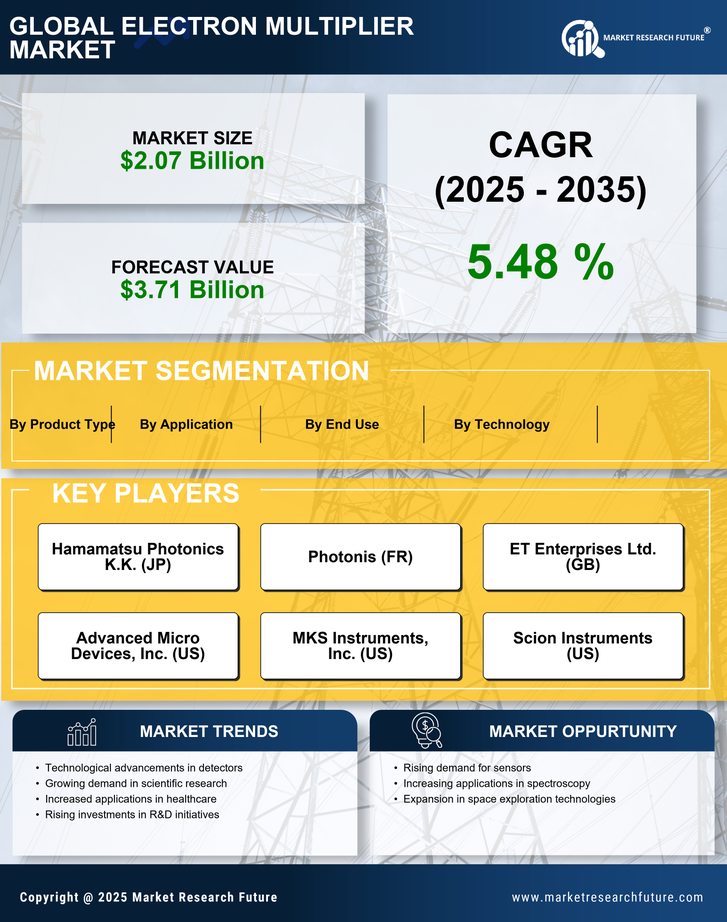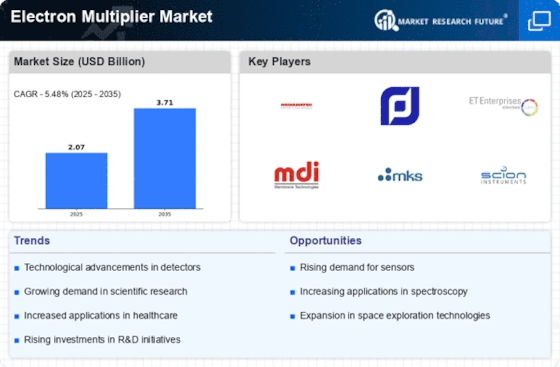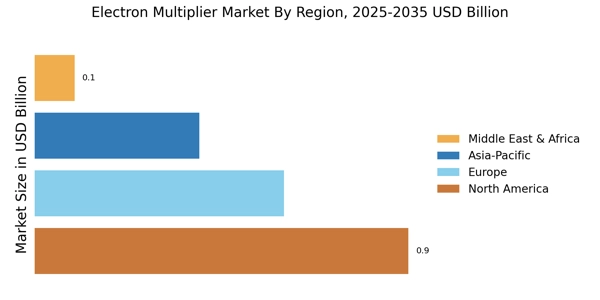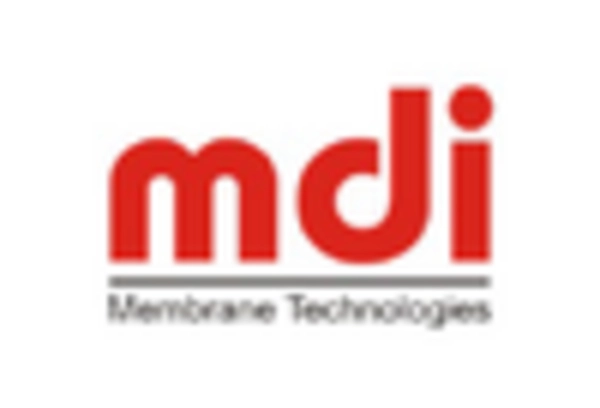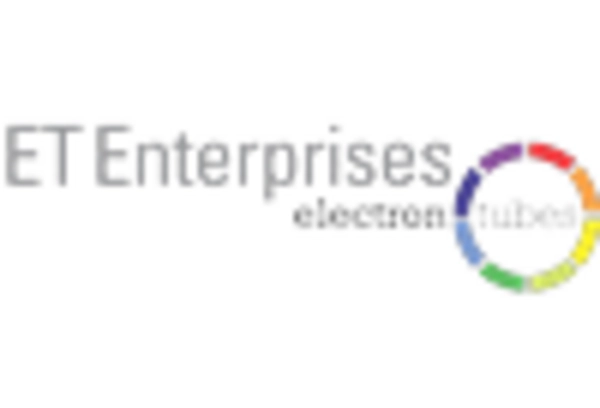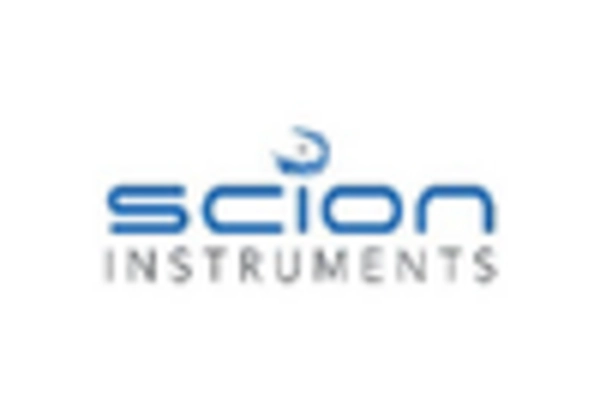Expansion of Industrial Applications
The Electron Multiplier Market is experiencing expansion due to the growing utilization of electron multipliers in various industrial applications, including semiconductor manufacturing and quality control processes. As industries seek to improve product quality and efficiency, the demand for precise measurement tools has increased. Electron multipliers are essential in applications such as electron beam lithography and surface analysis, where accurate detection is paramount. The industrial sector's focus on automation and process optimization is likely to drive market growth, with estimates suggesting a potential increase in demand of around 6% over the next few years. This trend indicates a promising future for electron multipliers in diverse industrial settings.
Integration with Emerging Technologies
The Electron Multiplier Market is poised for growth as electron multipliers are increasingly integrated with emerging technologies such as artificial intelligence and machine learning. These technologies enhance data analysis capabilities, allowing for more precise measurements and faster processing times. The synergy between electron multipliers and advanced computational techniques is likely to open new avenues in research and industrial applications. For example, in the field of environmental monitoring, the combination of electron multipliers with AI algorithms can lead to improved detection of pollutants. This integration is expected to drive market growth, with projections indicating a potential increase in demand by 5% over the next few years.
Growing Demand in Healthcare Applications
The Electron Multiplier Market is witnessing a notable increase in demand from healthcare applications, particularly in diagnostic imaging and analytical instrumentation. Electron multipliers are crucial components in devices such as positron emission tomography (PET) scanners and mass spectrometers, which are essential for accurate diagnostics and research. The healthcare sector's focus on precision medicine and early disease detection is propelling the need for advanced detection technologies. As a result, the market for electron multipliers in healthcare is expected to grow significantly, with estimates suggesting a potential increase of around 7% annually. This trend indicates a robust future for electron multipliers as they become integral to innovative healthcare solutions.
Rising Investment in Research and Development
The Electron Multiplier Market is benefiting from rising investments in research and development across various sectors, including academia and industry. Increased funding for scientific research is driving the demand for high-performance detection systems, where electron multipliers play a critical role. Institutions are focusing on developing innovative applications, which in turn fuels the need for advanced electron multiplier technologies. Reports suggest that R&D spending in relevant fields is expected to rise by approximately 8% annually, indicating a strong commitment to enhancing detection capabilities. This trend is likely to bolster the electron multiplier market as new applications and technologies emerge.
Technological Advancements in Detection Systems
The Electron Multiplier Market is experiencing a surge in demand due to rapid technological advancements in detection systems. Innovations in materials and design have led to enhanced performance and efficiency of electron multipliers. For instance, the development of microchannel plates has significantly improved the sensitivity and speed of detection, making them indispensable in various applications such as mass spectrometry and particle physics. The market is projected to grow at a compound annual growth rate of approximately 6.5% over the next five years, driven by these advancements. Furthermore, the integration of electron multipliers with advanced data acquisition systems is likely to enhance their functionality, thereby expanding their application scope in scientific research and industrial processes.
